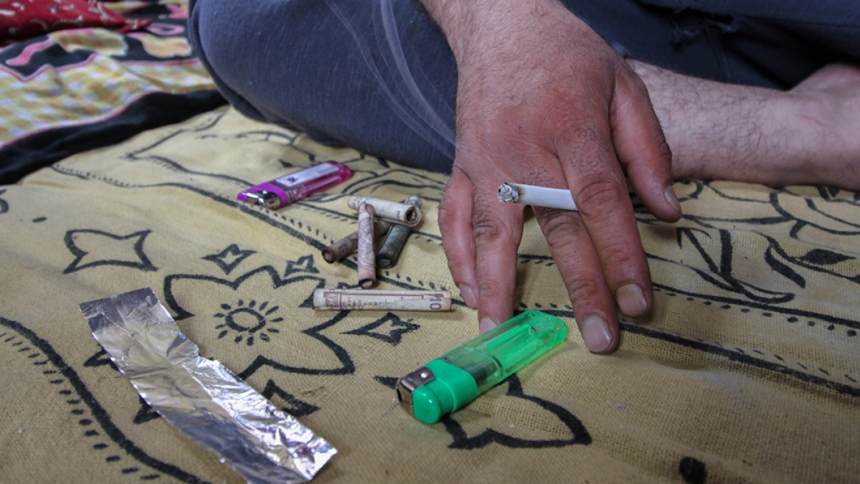The Union Territory of Jammu and Kashmir is grappling with a significant drug crisis, as highlighted by the alarming statistics that reveal over 6,500 cases registered and 9,424 arrests made under the Narcotics Drugs and Psychotropic Substances Act (NDPSA) since 2021. This situation underscores the urgent need for effective measures to combat drug abuse and trafficking in the region.
Escalating Drug Abuse and Law Enforcement Response
The data, provided by the Ministry of Home Affairs, indicates a troubling trend in drug-related offenses. In 2021, there were 1,543 cases registered with 2,217 arrests. This number rose in 2022, with 1,857 cases and 2,755 arrests. The trend continued into 2023, where 2,149 cases were recorded along with 3,072 arrests. As of September 2023, an additional 985 cases have been documented, resulting in 1,380 arrests.
In total, nearly 8,000 kilograms of narcotics have been destroyed over the past five years, including significant quantities of hashish, heroin, and poppy straw. This destruction reflects the ongoing efforts by law enforcement agencies to mitigate the impact of drug abuse in the region.
Government Initiatives to Combat Drug Menace
The Government of India has implemented various measures to address the drug crisis in Jammu and Kashmir. The Ministry of Home Affairs has provided necessary assistance to local authorities to strengthen their response against drug trafficking and abuse. Key initiatives include:
- National Action Plan for Drug Demand Reduction: This centrally sponsored scheme aims to tackle substance use through financial assistance to states and union territories.
- Narco-Coordination Centre (NCORD): A four-tier mechanism has been established to ensure better coordination among Central and State Drug Law Enforcement Agencies. An all-in-one NCORD portal has been developed for efficient information sharing related to drug law enforcement.
- Anti-Narcotics Task Force (ANTF): Each state and union territory now has a dedicated task force headed by high-ranking police officials to oversee compliance with NCORD decisions and coordinate anti-drug efforts.
- Joint Coordination Committee (JCC): Set up by the Government of India to monitor investigations into significant drug seizures.
- National Narcotics Helpline ‘MANA’: A 24/7 toll-free helpline designed for citizens to report and resolve drug-related issues through various communication channels.
Addressing the Root Causes
The rising tide of drug abuse in Jammu and Kashmir is not just a law enforcement issue but also a social one. Reports indicate that over 900,000 individuals in the region are affected by substance abuse. The crisis is exacerbated by socio-economic factors and the historical context of conflict in the area.
To effectively combat this issue, it is crucial to focus on rehabilitation and prevention alongside enforcement. The government has established several de-addiction centers and is working towards integrating drug education into community programs.
Recommendations for Future Action
- Strengthening Community Programs: Engaging local communities in awareness campaigns can help reduce stigma around addiction and encourage individuals to seek help.
- Enhancing Rehabilitation Services: Increasing the number of de-addiction centers and improving existing facilities can provide better support for those struggling with addiction.
- Collaborative Efforts with NGOs: Partnering with non-governmental organizations can enhance outreach programs aimed at educating youth about the dangers of drug abuse.
- Monitoring Drug Cultivation: Stringent measures should be taken to monitor and eradicate illegal cultivation of narcotic plants within the region.
Multi-Faceted Battle
The battle against drug abuse in Jammu and Kashmir requires a multi-faceted approach that includes law enforcement, community engagement, rehabilitation services, and preventive education. As authorities continue their efforts to combat this pressing issue, it is essential for society as a whole to recognize the gravity of the situation and work collaboratively towards a solution that ensures a healthier future for all residents of Jammu and Kashmir.







